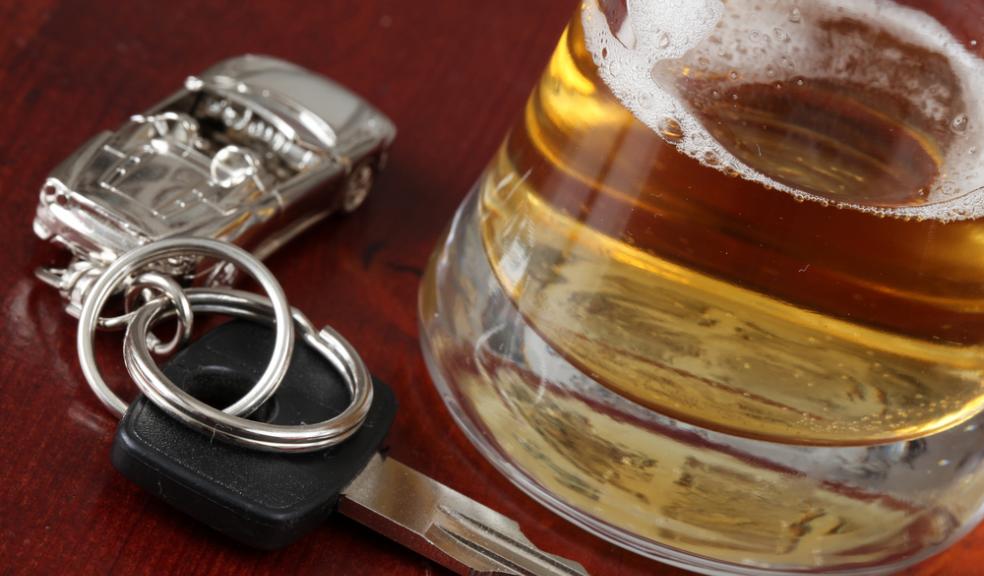
THINK! Don't drink and drive
It's been 50 years since the THINK! road safety campaign was launched and road safety officers in Devon are reminding people of the dangers of driving while under the influence of alcohol.
In Devon during 2012 and 2013 there were a total of 3,529 recorded injury collisions. Of these, 148 collisions, including seven deaths, were as a result of road collisions where alcohol was recorded as being a contributory factor.
Ali Morrish from Exeter lost her daughter Anna in 2008 when she accepted a lift home after a party from a driver who had been drinking. She was killed aged just 21 when he lost control on the M5.
Ali says; "I don't know if you can imagine how it must feel to lose someone as beautiful, bubbly and as gorgeous as my daughter and then be told I couldn't see her. It was just devastating that I would never hold my daughter again.
"We lost her on the same day as my youngest son's 13th birthday and he said to me, 'this doesn't happen to families like us', but the sad reality is, it does. It's been six years since it happened but in my heart, it feels like yesterday and I know that I've got the rest of my life to be spent in pain and grieving for her."
Life – and Christmases – have never been the same since for Ali and her family and she is continuing to share her story in the hope that other families can be spared similar devastation. Ali's story can be seen here
Councillor Stuart Hughes, Devon County Council Cabinet Member for Highway Management, said: “There are too many desperately sad stories like Ali's and I cannot say strongly enough that there is no excuse for drink driving. As well as the impact on family and friends, there is the guilt of knowing the devastation caused, a criminal record, a ban on driving, loss of licence, loss of job and earning and up to £5,000 in fines. It’s just not worth it.
"Although much has been achieved over the last 50 years in terms of attitudes towards drink driving, there is no room for complacency. In Devon, we are always striving to improve safety on our roads and are very clear in our message that drink driving is unacceptable."
On the 50th anniversary of the first public information film, new research from THINK! shows how much attitudes have changed to drink driving in the last half century.
Of those surveyed, 92% in the South West agreed drink driving was unacceptable and 93% said they would feel ashamed if they were caught drinking and driving. This compares to over half of male drivers and nearly two thirds of young male drivers who admitted drink driving on a weekly basis in 1979.
The shift in attitudes is a stark contrast to the first drink drive public information film in 1964, which was set in an office Christmas party. The advert politely reminded people that “four single whiskeys and the risk of accident can be twice as great... If he’s been drinking, don’t let him drive.”
Through a combination of road safety campaigning and better enforcement, road deaths due to drink driving have fallen from 1,640 in 1967 to 230 deaths in 2012.
Today, the government is sending out a clear message there is still a long way to go. A new advert, launching today, reminds people that one death on our roads is too many.
Transport Secretary Patrick McLoughlin said: “The change in attitudes to drink driving over the last 50 years is a huge success story. It is hard to imagine now how shocking and ground-breaking the first drink drive campaigns were when they launched. Clearly THINK! has had a significant impact. Most of us understand drink driving wrecks lives but there is further to go. In 2012, 230 people were killed in drink driving accidents – 230 too many. This makes the THINK! campaign as relevant as ever.”
Although the common assumption is that drivers under the influence of alcohol are arrested on their way home from the Christmas party, the reality is that the effects of alcohol can last well into the next morning and drivers could still be impaired and within prosecutable limits.
On average it takes around one hour for each unit of alcohol to pass through the body - although this can vary according to a number of factors.
For example, after four pints of lager, a person should not drive for at least 13 hours from finishing their last pint. If they finish at midnight, they may not be safe to drive until after 1pm the next day.
Even a very small amount of alcohol can affect someones ability to drive safely. The best advice is not to drink at all if driving, and to avoid heavy drinking if driving the following day.
More on this on the Think website.











